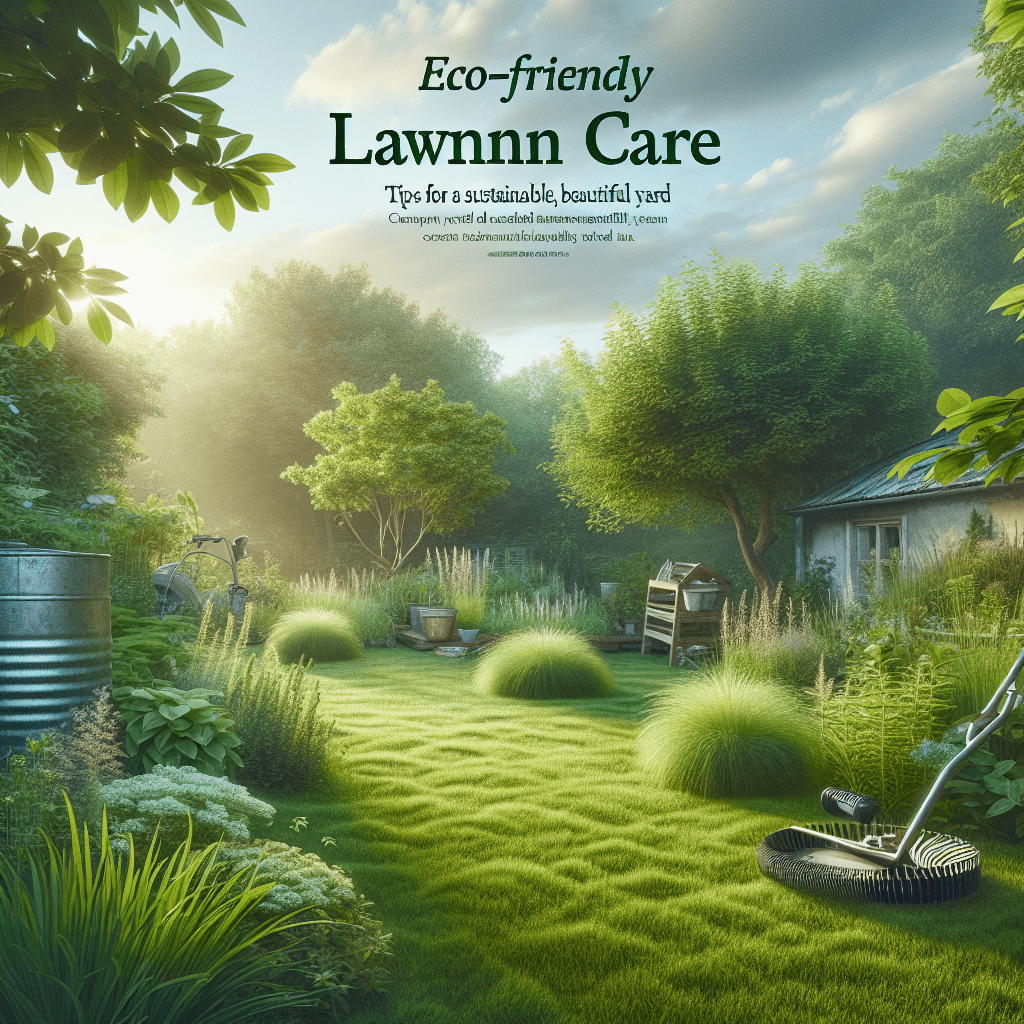Having a lush, green lawn is a goal for many homeowners, but traditional lawn care practices can harm the environment. Fortunately, there are eco-friendly alternatives that can help you achieve a beautiful yard while minimizing your impact on the planet. In this article, we will explore some tips for sustainable lawn care that will help you create a healthy and vibrant outdoor space.
1. Choose Native Plants
One of the best ways to create a sustainable lawn is to choose native plants for your yard. Native plants are adapted to the local climate and soil conditions, so they require less water, fertilizer, and pesticides to thrive. By incorporating native plants into your landscape, you can create a beautiful yard that is also low-maintenance and environmentally friendly.
2. Use Organic Fertilizers
Traditional fertilizers contain chemicals that can harm the environment and disrupt the natural balance of your lawn. Instead of using synthetic fertilizers, opt for organic alternatives such as compost, manure, or organic fertilizer blends. These natural fertilizers provide nutrients to your lawn without the harmful side effects of chemical fertilizers.
3. Practice Water Conservation
Watering your lawn is essential for keeping it healthy, but it’s important to do so responsibly. To conserve water, water early in the morning or late in the evening when evaporation rates are lower. You can also collect rainwater in a barrel and use it to water your lawn instead of relying on municipal water sources. Additionally, consider installing a rain garden or using permeable paving to reduce runoff and prevent water pollution.
4. Avoid Pesticides
Pesticides may be effective at controlling weeds and pests, but they can also harm beneficial insects, birds, and other wildlife. To maintain a healthy lawn without resorting to pesticides, practice proper lawn care techniques such as mowing at the correct height, aerating the soil, and overseeding to fill in bare spots. You can also encourage natural predators like ladybugs and birds to help keep pests in check.
5. Mow Mindfully
When mowing your lawn, set your mower blades to the highest setting to promote healthy root growth and shade out weeds. Avoid cutting more than one-third of the grass blade length at a time, and leave grass clippings on the lawn to return nutrients to the soil. Consider using a push reel mower or an electric mower powered by renewable energy to reduce your carbon footprint.
6. Create Wildlife Habitats
Invite biodiversity into your yard by creating wildlife habitats such as bird feeders, bat houses, butterfly gardens, and bee-friendly plants. By supporting pollinators and other beneficial wildlife, you can help maintain a healthy ecosystem in your backyard. Avoid using bird baths or standing water that can attract mosquitoes and promote the spread of diseases.
Conclusion
By following these eco-friendly lawn care tips, you can create a beautiful and sustainable yard that benefits both your family and the environment. From choosing native plants to practicing water conservation and avoiding pesticides, every little effort counts towards a greener future. With the right approach, you can enjoy a healthy and vibrant lawn that enhances the beauty of your outdoor space while minimizing your ecological footprint.
FAQs
Q: Can I still have a beautiful lawn without using pesticides?
A: Yes, you can maintain a healthy and green lawn without using pesticides by practicing proper lawn care techniques and encouraging natural predators to keep pests in check.
Q: How can I reduce water usage in my lawn care routine?
A: To reduce water usage, water your lawn early in the morning or late in the evening, collect rainwater in a barrel, and consider installing a rain garden or using permeable paving to prevent runoff.
Q: Are synthetic fertilizers harmful to the environment?
A: Yes, synthetic fertilizers can harm the environment by leaching into water sources, disrupting soil health, and causing algal blooms in water bodies. Organic fertilizers provide a safer and more sustainable alternative.
TIP: Embrace diversity in your lawn
Instead of striving for a perfectly manicured lawn, embrace diversity by allowing clover, dandelions, and other “weeds” to grow. These plants can provide valuable nutrients to your lawn and support pollinators, creating a more resilient and eco-friendly outdoor space.
#EcoFriendly #Lawn #Care #Tips #Sustainable #Beautiful #Yard

